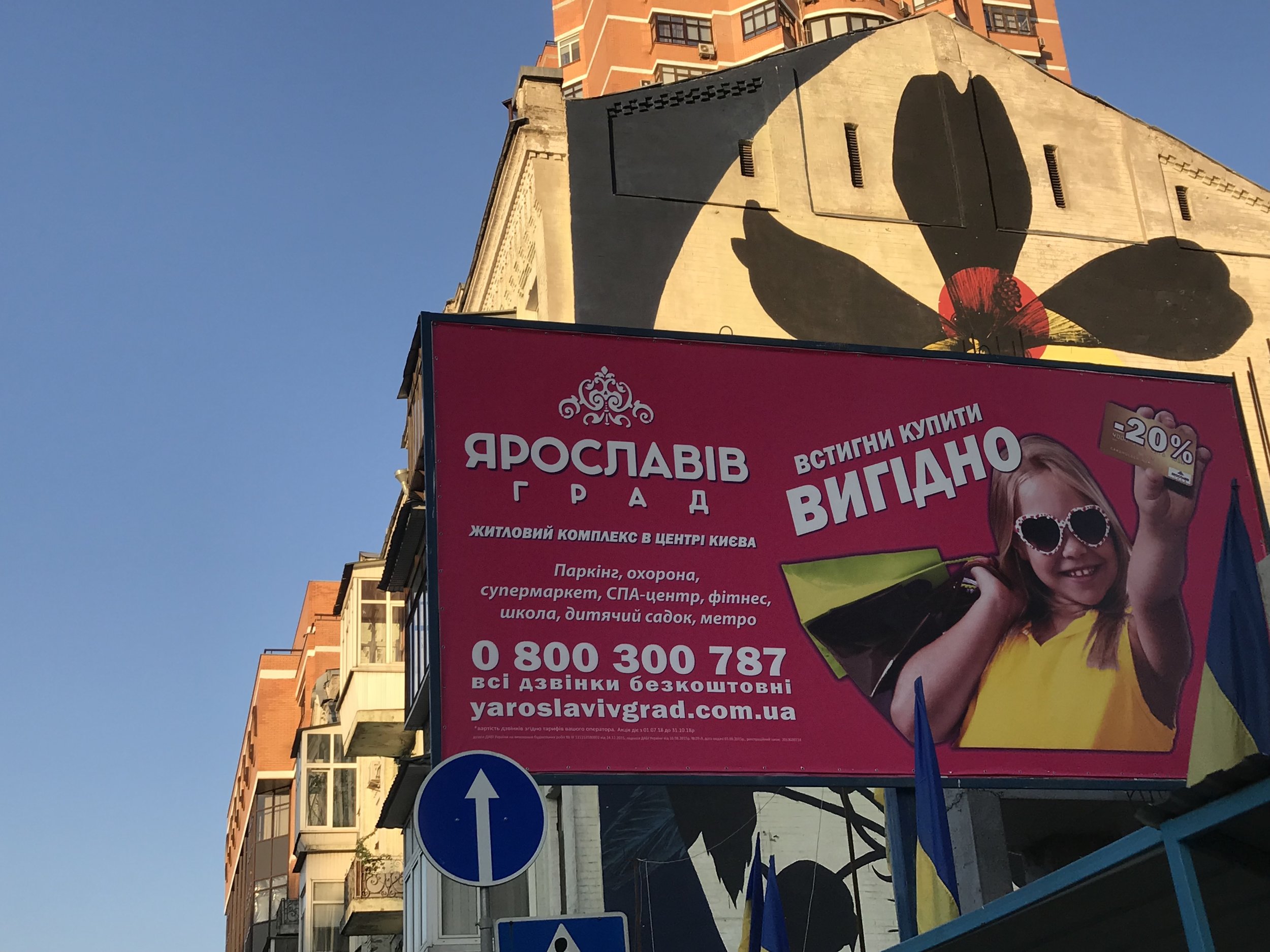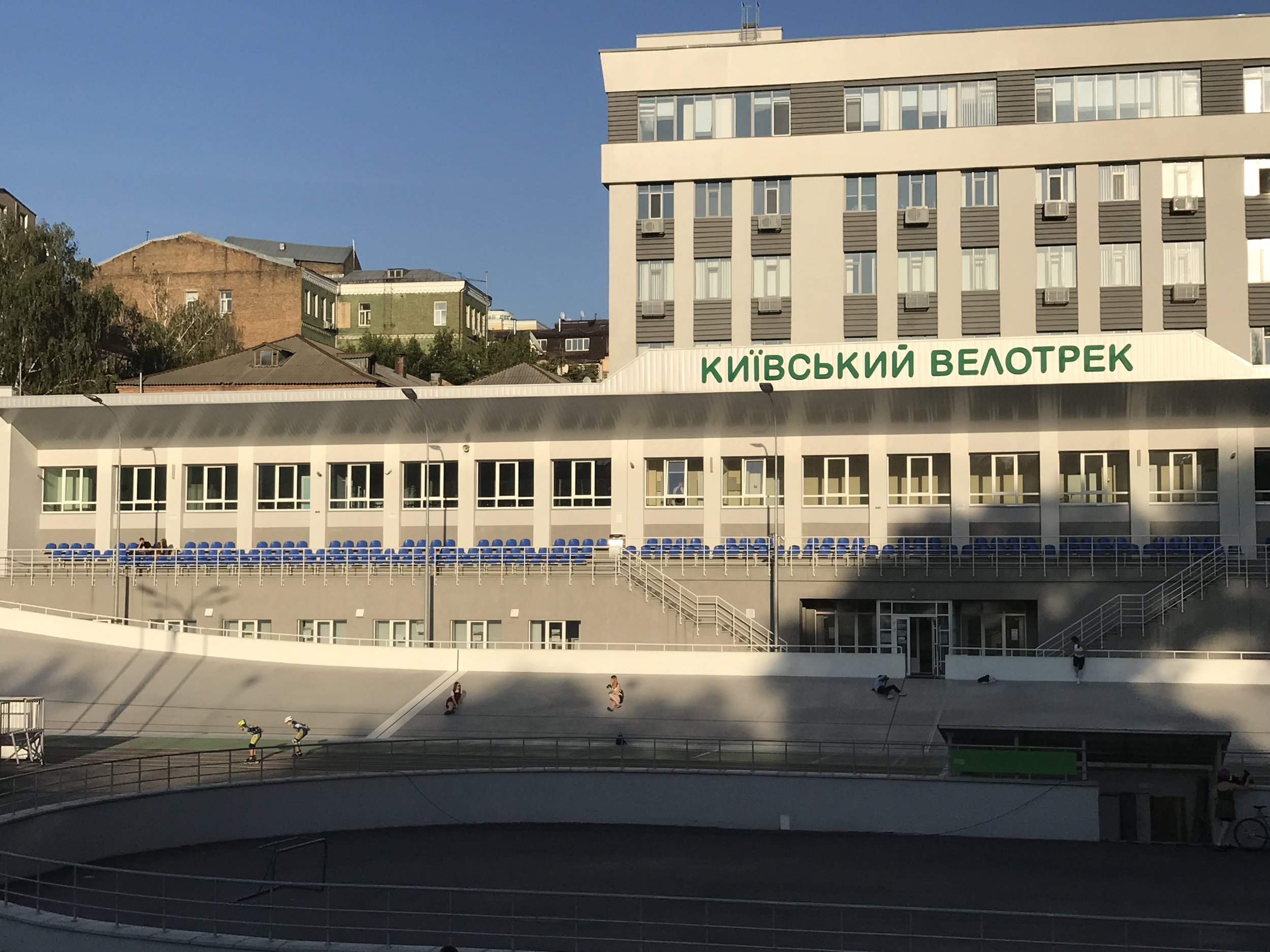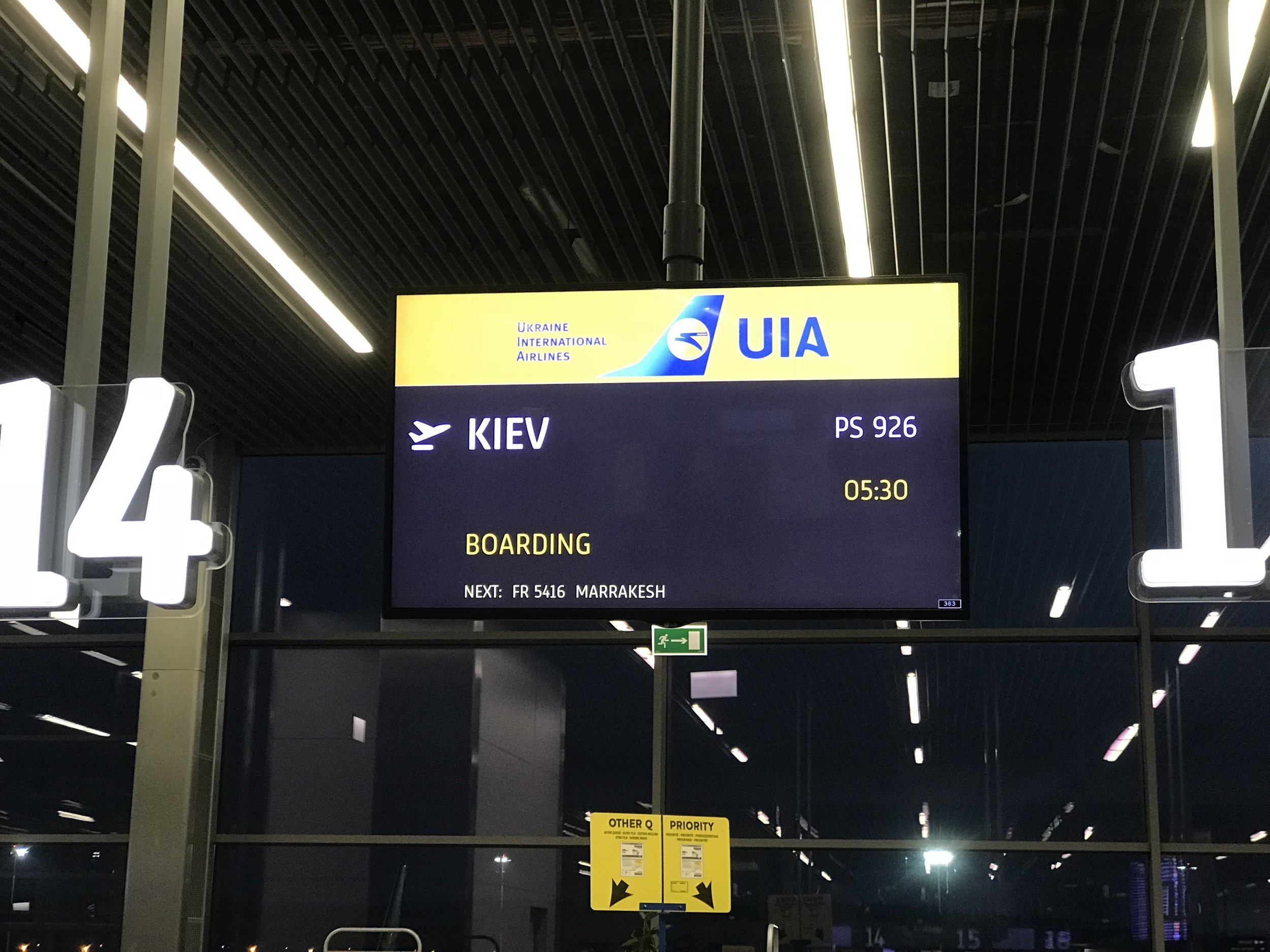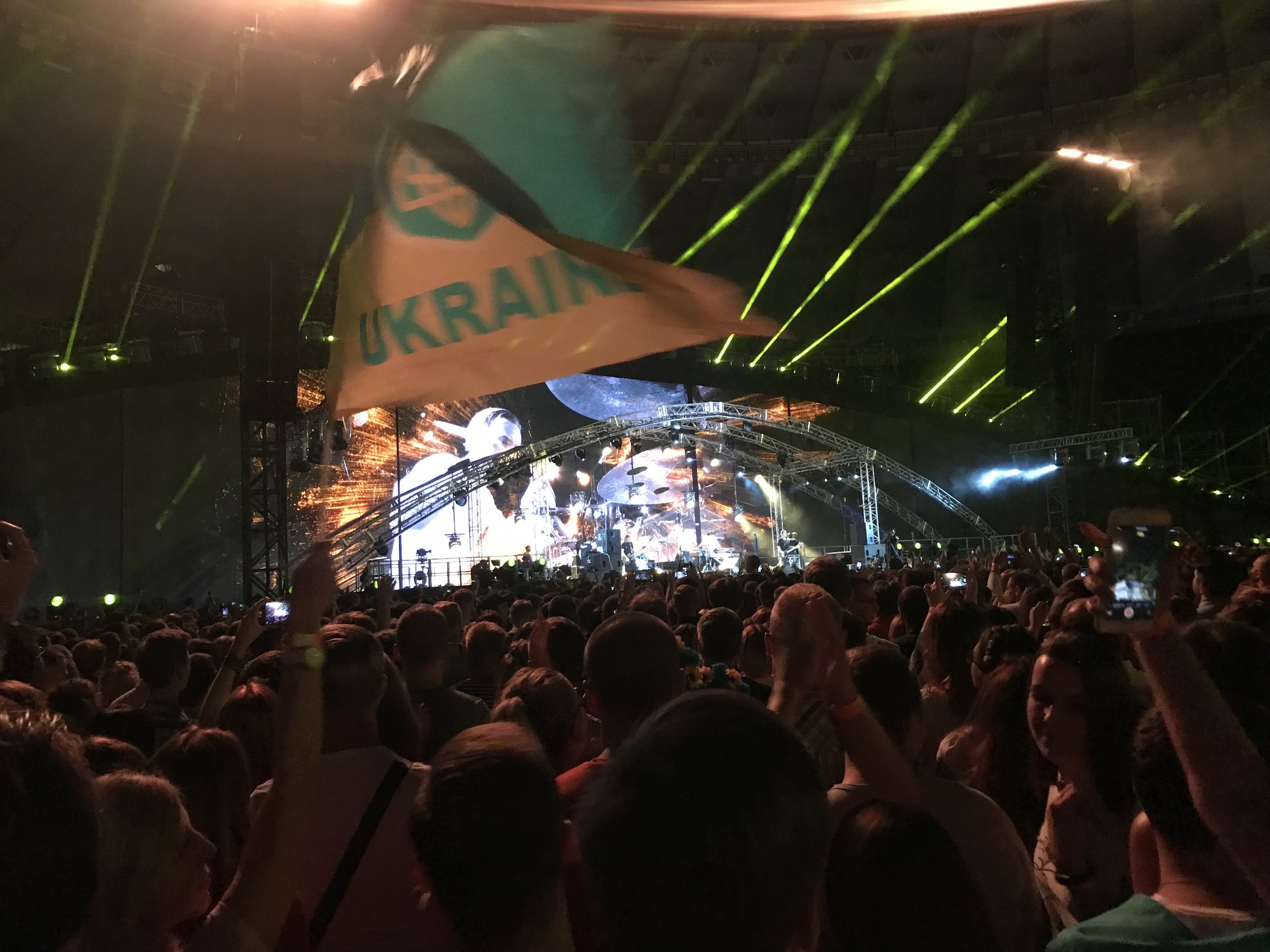
If language in Ukraine was like a relationship status on Facebook, it would be categorized: It’s complicated.
I’m not here to talk about the political, national, or historical context of language.
I understand the unjust manipulation of the Ukrainian language and the attempted undermining of identity that comes through linguistic suppression. I understand how twisted the darkness of geopolitics and power works. How politicians manipulate populations through their peoples’ greatest fears; and how outside powers have dictated much of Ukraine’s history.
These topics are found in other articles from people who are much more qualified than me to write them. If that’s the story you’re looking for, don’t waste your time here.
This view of language in Ukraine is from personal and foreigner’s perspective.

What I can gather from the streets of Kyiv is more people speak Russian than Ukrainian. Most people speak both. The language our parents spoke is the most natural for us. I speak English because I was told to; it was never my choice. Native language is never our choice.
Foreigners who come to Ukraine won’t know the difference between Ukrainian and Russian if they don’t have a background in either language. Many of the words are similar. It’s impossible to decrypt between the two in the beginning. It’s like a Ukrainian understanding the differences between Spanish and Portuguese with no history with either language.
To dial up the confusion, the streets of Kyiv are a linguistic collage. One person might speak Ukrainian, and the other might respond in Russian during a casual conversation. The entirety of the dialogue can go like this while both parties are laughing away. It took me months to figure this out. In a way it’s impressive; in another way, it’s a nightmare for a newbie.
At first, listening to sentences of Ukrainian or Russian sounded like one continuous word. Initially, it was just about breaking words apart from each other like chipping hard ice away with an ice pick. If you’ve traveled to Spain without knowing Spanish you’ll know what I mean.
I’ve been here long enough now. At a basic level, I know what words are Ukrainian and which ones are Russian. I can hear a difference in the sounds of the languages. I know the letter “i” will never be found in Russian.
I received my first linguistic ass kicking with the word “Kiev.” Ever since day one, I knew Kyiv as Kiev, every foreigner does. Every map, flight board, weather report, mention in the media, chicken Kiev; every reference outside of Ukrainian borders has always gone this way.

When I landed at Boryspil and saw the word “Kyiv” for the first time, I didn’t know why it was spelled like so. I observed this briefly, but my focus quickly shifted to figuring out why I couldn’t get money out of the ATM machine, followed by judging if the shady looking guy saying “taxi” in a deep smokers voice was dangerous or not.
After week one or two the word Kyiv registered into my head dozens of times. In conversation, I’d sometimes say Kyiv instead of Kiev while talking to friends back home on the phone. They didn’t understand why I was saying Kyiv, and either did I. In retrospect as I write about this, it all seems so obvious now.
At this point, you the reader might say, “How could you not know this?” Well… it’s the same reason that you don’t know Bangkok is Krungthep. Thais don’t call it Bangkok. The outside world does. Bangkok is on every flight board, map, external reference, song (outside of Thai). You’ve never heard of Krungthp; you’ll only learn this after being on the ground in Thailand.
Moving on…
I didn’t start in Ukraine in a Ukrainian environment. I moved in with my American friend that was living here who was about as green to Ukraine as myself. I didn’t enter a work environment with Ukrainians. In the beginning, I was very much an outsider.
The first weeks in a new country… it’s about figuring out the most basic things. Why don’t they sell notepads and pens in the grocery store? Where can I find a winter coat? Can you drink the water out of the tap? What’s the name of the vegetable to type into the scale at the grocery store (as a massive line builds up that’s stressing everybody out)? Why is my landlord so insane? Why will the ATM only give me 1000uah at a time when rent is many multiples of that?
Things progress very slowly at first….
Months later I wrote a story on my blog titled, “Living in Kiev: My First Three Months of Observations.” I intended it to be read by an international audience, to show what’s cool about Kyiv and Ukraine, and to present a countering perspective from what people usually hear in the west. The story went viral and crashed my website. Foreigners read it, but to my surprise, Ukrainians read it more.
I received dozens of comments about the way I spelled the capital city. For the first time, I learned about the etymology of the two spellings: one being the Russian transliteration into English, and the other being the Ukrainian one. The “tough love” comments cemented Kyiv into my mind. I changed the title of my article from Kiev to Kyiv. My vocal chords vowed to never say Kiev again. Lesson learned.
A few days later I was talking with a Ukrainian friend who owns a language school here; she said Kiev in the middle of a sentence.
“Wo wo wo… what did you just say?” I said in confusion, as the lines between my eyes on my forehead pinched like a crack in the road.
She responded, “Kiev” with authority. “It’s the city we’re in you know.”
“It’s Kyiv, not Kiev,” I responded. “Why would you say Kiev?”
“I always say Kiev,” she replied as she started walking again as if nothing happened.
She was sticking to Kiev, and so were some other Ukrainians I met. Things became more mysterious. But it didn’t matter, after my article; Kiev was buried in my linguistic graveyard.
I’ve always admired those people who can pick up another language easily. It takes me like 1000 times of hearing a word for it to land in my head. We all have our strengths and weaknesses, and foreign languages have never been my strong point.
Ukrainian and Russian grammar tables scare me more than an aggressive knife-wielding thug in the dark alleyways of Mexico City. But to my defense, Slavic languages are no carnival ride. If you’re not born into them, dozens of ways to pluralize a noun is one form of insanity (English has “s” “es” and “i” that’s used maybe once a year). No grown adult likes to sound like a preschooler without the cuteness of one; language learning is a humbling experience….
The equivalent experience for a Ukrainian might be learning Arabic.
So it seems clear, right? As a foreigner you want to start with one language in Ukraine, it would make sense to learn Ukrainian, yes? Well, sort of….
A few special souls in the Ukrainian diaspora in the USA and Canada will make this answer very clear. They might associate you with Ivan the Terrible, Stalin, a Russian spy, or anything nuclear associated with Russia if any Russian is found in your content. What they fail to understand is what yoga class is like in Kyiv. When your body is cramping, sweating, and suffering while your ass is up in the sky, that your key to relief is the Russian word “otdihaem” (rest) spoken by the instructor.
Of the three different yoga studios I’ve been to here in Kyiv, all classes were taught in Russian. The startup events I’ve attended were in English or Russian. Or the few times people asked me for directions, they did so in Russian. The journal I write for in Ukraine gets published in Russian. The doctor I visited speaks Russian. All the movies in the theater are in Ukrainian. Musicians mostly sing in Ukrainian. Museums are in Ukrainian. A majority of the radio is in Ukrainian. The national language is Ukrainian. Most of the signs are in Ukrainian. Government documents are in Ukrainian. The youth learns Ukrainian in school.
You realize in Kyiv, it’s not linguistically simple.
I’ve also realized in the capital that nobody seems to have a problem with two languages flowing at the same time. I’ve never seen any tension on the streets over this. I’ve observed both languages living and breathing healthily alongside each other. The language here is like a flexible straw, people bend them, switch them, put them in different positions, but don’t argue over them.
Back to another story…
I hired a video editor for a project a couple of months ago. A young and forward-thinking guy. Our aim was to reach as many people as possible with the video. It was shot in Kyiv but wasn’t Ukrainian centric. I wanted to make something lighthearted and fun that bridged cultures, instead of something divisive and political that divides them. I wanted as many people who would get value out of it to see it. If I kept the subtitles in Ukrainian, I would have excluded the audience I wanted to have stretching from Kazakhstan to Kaliningrad.
My team and I decided that Russian subtitles made sense for the reasons above. But at the last minute, the editor and his fiancé told me,
“Yes, you should definitely use Ukrainian.” even though he agreed that they should be in Russian earlier.
They continued their conversation discussing this matter with each other in Russian. I observed them as my forehead pinched again, the same befuddlement I felt before came up again.
“What language do you speak to each other when you’re both at home together?” I asked.
“Russian,” my editor replied without hesitation.
“You speak perfect Ukrainian though don’t you?” I responded.
“Yes, of course.”
“But, then, how…? why…?…”
…And… I went back into the realm of linguistic confusion and flashbacked to when my Ukrainian friend stubbornly stuck to Kiev instead of Kyiv.

The bonafide reality in Ukraine is it’s possible that somebody might speak Russian at home with their loved ones and be much more proud and connected to Ukraine than someone who speaks Ukrainian at home. The other reality is also true. But this highlights something quite profound and made me think about my own language. The flag or origin of the language doesn’t mean it’s an objective metric for an association to that country.
The historical context of Ukraine isn’t comparable with the US, but even though the name England is in the title of my native language, and I see my language on paper or a screen with British flag next to it, I feel no connection to that flag or country.
Language is alive and always changing. The linguistic landscape of Ukrainian is building momentum. In Kyiv, it appears Ukrainian will far supersede Russian in time. This makes sense if the youth is learning Ukrainian, and the youth is the future.
Language builds national identity, and the Ukrainian language is important for Ukrainian’s identity and individuality. I notice when I speak the little Ukrainian I know like “diakuyu” (thank you in Ukrainian) instead of “spasibo” (thank you in Russian) people respond with more energy.
I’ve met Ukrainians who’ve changed from their daily language of Russian to Ukrainian because they feel passionate about pushing the Ukrainian language forward. This isn’t easy to do but is highly admirable and a mark of dedication for the future of their country.
I understand oppression and shame were the weapons of choice in the Soviet Union, but things have progressed. Forcing someone to change languages is like forcing someone to change religions. To do so without resentment it has to come naturally from the inside or through positive encouragement instead of demanded upon from the outside with weight. In a healthy society this should be a personal decision.
A mark of an interesting country is diversity and diversion from sameness. After living in the east of Ukraine last summer, and seeing the west of the country, Ukraine ranges widely. I like America because San Francisco and Miami are very much two different worlds, just like Lviv and Kharkiv are.
I’ve learned that knowing Russian for a yoga class or startup event in Kyiv works best, but to get to the heart of most people, it’s through Ukrainian.
I also think it’s a huge accomplishment to have linguistic peace in the capital city. This isn’t always the reality in all bilingual cities around the world. The fact that people don’t rip other people to shreds for speaking the language that comes most organically to them is a success. The language that our mother spoke to us as a child is always the most natural to us; our native language was never our choice….
As a foreigner traveling to Ukraine, the on-the-ground reality—not the online one—is that Ukrainians will be cool if you say Kyiv or Kiev. They will speak to you in either Ukrainian or Russian and will be more than understanding in helping you navigate the sometimes confusing, but the unique landscape of their beautiful country.
If you’re interested in more content from UKRAINE and the WORLD visit these links below:
